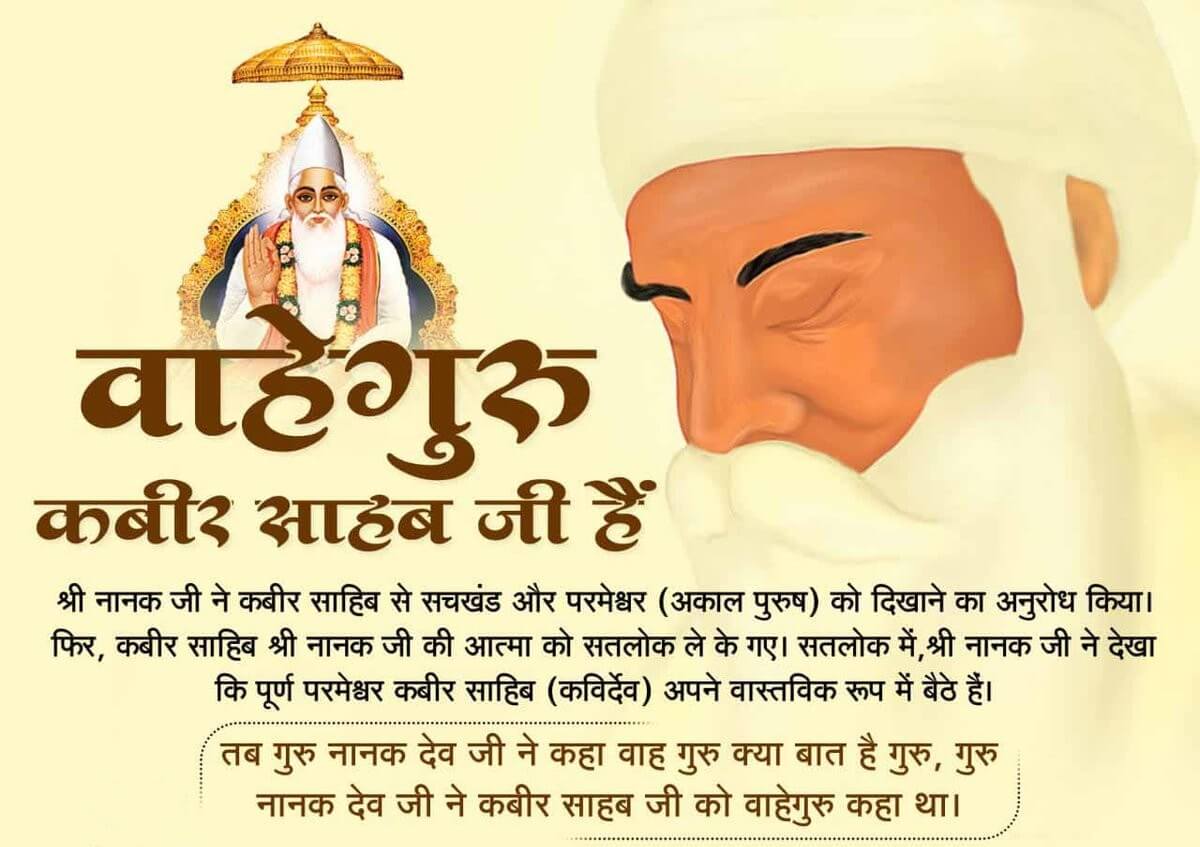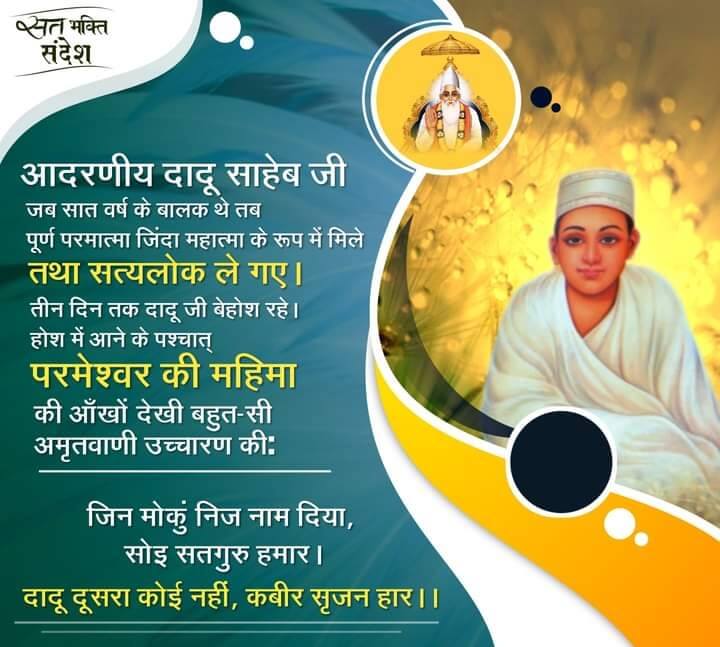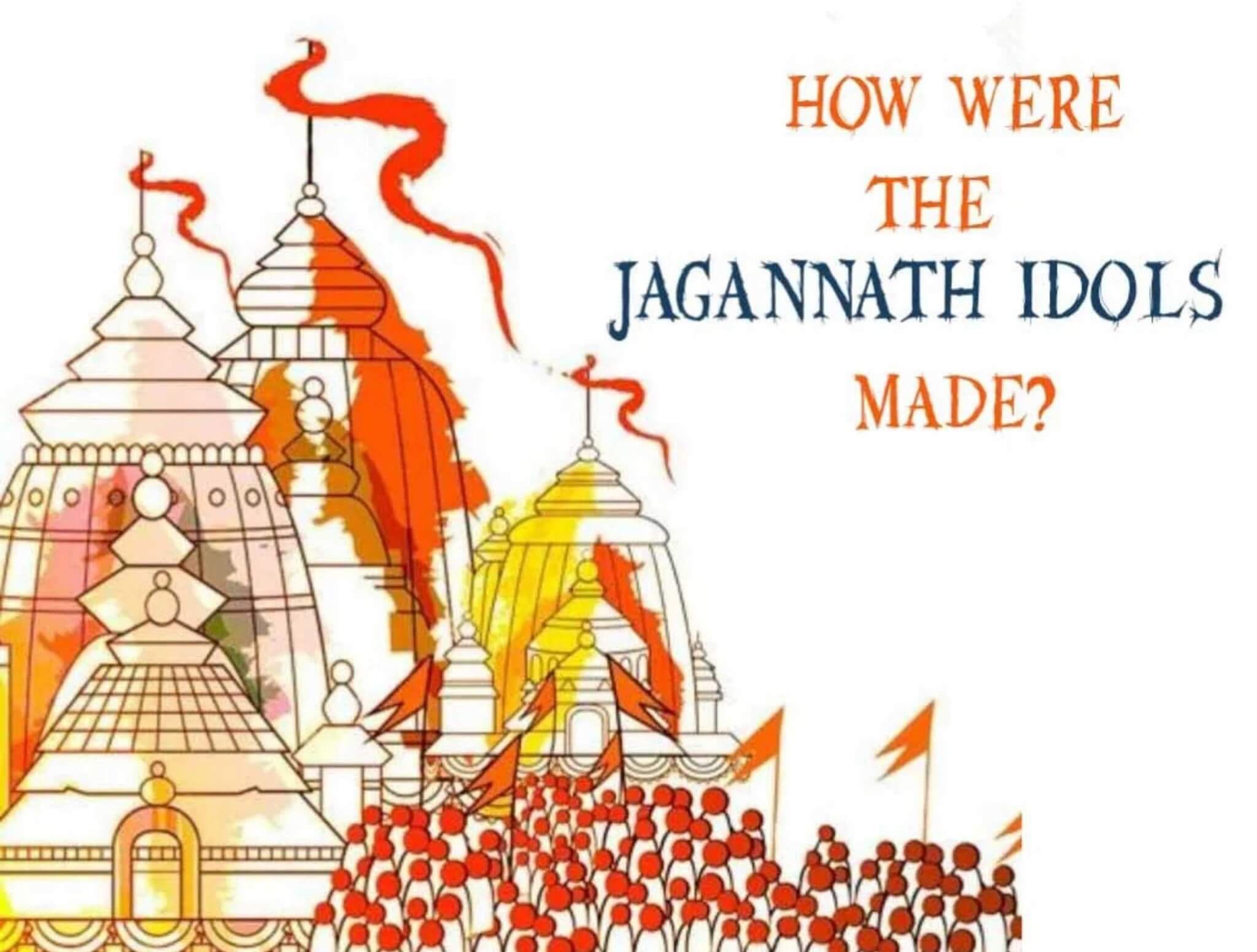Chapter "Mukti Bodh" Summary
The 20th chapter of Kabir Sagar, titled Mukti Bodh, begins on page 63 and extols the glory of Adi Naam (the primordial name).
Kabir saakhi, pad bolen bahu baani. aadi naam koi birla jaani.
Aadi naam nij saar hai, boojh liyo ho hans. jin jaana nij naam ko, amar bhaye te vansh.
Aadi naam nij mantra hai, aur mantra sab chhaar. kahe Kabir nij naam bina, bood mara sansaar.
Summary of Mukti Bodh Page 64
Adinaam Nihakshar Sancha. Jaate Jeev Kaal Son Baacha.
Nihakshar Dhun Jahvaan Hoi. Taahi Jape Nar Birla Hoi.
Jaake Bal Aave Sansara. Taahi Jape Nar Ho Bhav Para.
Gupt Naam Guru Bin Nahin Paave. Poora Guru Ho Soi Lakhave.
Saar Mantra Lakhe Jo Koi. Vishdhar Mandwa Nirmal Hoi.
Aadi Naam Muktamani Sancha. Jo Sumare Jeev Sabson Baacha.
Aadi Naam Nij Saar Hai Bhai. Jamraja Tehi Nikat Na Aai.
Jab Lag Gupt Jaap Nahin Jaane. Tab Lag Kaal Hata Nahin Maane.
Gupt Jaap Dhvani Jahvaan Hoi. Jo Jan Jaane Birla Koi.
Mool Mantra Jehi Purush Ke Paasa. Soi Janko Khoj Le Daasa.
Saar Mantra Mool Hai Au Sab Saakha. Kahain Kabir Main Nij Ke Bhaakha.
Likho Na Jaay Kahai Ko Para. Hai Akshar Mein Jo Paavai Nirbaara.
Likho Na Jaay Likha Mein Naahin. Guru Bin Bhet Na Hove Taahin.
Meaning: The above verses, written on pages 63-64, convey the following essence: Many saints recite and explain hymns and verses, but only a rare soul truly understands the Adi Naam (primordial name), also referred to as Saar Shabd.
Adi Naam is the ultimate mantra for liberation, while other mantras are akin to ashes—ineffective for salvation and thus futile. This Adi Naam is the core mantra, and without its repetition, all beings remain trapped in the cycle of birth and death, suffering worldly afflictions.
Whether you call it Adi Naam or Nih Akshar (eternal, indestructible name), it is the true name, the means to escape the clutches of Kaal. While reciting Saar Shabd, one hears an inner sound, and the focus should remain on that sound. However, only a rare devotee practices this properly.
The essence is that the correct method of Saar Shabd meditation is taught by a Satguru (perfect saint), and only a rare disciple follows it correctly. Without the secret knowledge of this mantra’s repetition, Kaal cannot be transcended.
Devotee, seek out that saint who possesses the hidden knowledge of meditating on Saar Shabd.
Likho na jaay likha main naahin. guru bin bhent na hovai taahin.
Likho na jaay kahe ko para. hai akshar mein jo paavai nirbaara.
The secret method of jap (meditative repetition) cannot be written down, nor have I written it in any scripture. This method cannot be explained openly to everyone. Only a Satguru (perfect spiritual teacher) can decisively and clearly impart it. Without such guidance, no one else can teach it.
Even the technique of meditating on the Saar Shabd is conveyed through spoken instructions, not written down—it is shared directly and understood verbally.
Note: Page 65 does not contain any new or unique knowledge, as it has already been explained earlier. Similarly, page 66 also lacks any distinctive insights.
Kahai Kabir sun Dharmdas sujaani. Akah hato taahi kaho bakhaani.
Meaning: The naam (mantra) which is unspoken and cannot be chanted verbally, its method of remembrance is taught through verbal explanation.
Page 67 contains general knowledge.
Page 68 does not present any unique or different knowledge.
Yahaan vahaan hum dono thaau. Satya Kabir kali mein mera naau.
Gupt jaap hai agam apaara. Taahi japai nar utarai paara.
Kabir, jaise fanpati mantra sun, raakhai fan sukoḍ. Aise bira saarnaam se, kaal rahai mukh moḍ.
Soham shabd nirakshar baasa. Taahi bhinn kar japiye daasa.
Saakhi:- Jo jan hai jauhari lega shabd bilgaay. Soham soham jap mare, mithya janm ganvaay.
Meaning: Paramatma Kabir Ji has clearly stated, "I exist in both places—here on Earth in the form of Satguru and in Satlok in the form of Satpurush. In Kaliyug, my true name, 'Kabir,' will prevail. The secret name (Saarnaam) is meditated upon, and its power is immense. In the presence of my Saarnaam, Kaal Brahm flees like a snake retreats and coils up upon hearing the incantations of a snake-charmer."
The Soham Shabd is connected to the Saarnaam. Its meditation is done in separate ways. If someone meditates only on the Soham Mantra in isolation, they are wasting their life. A true devotee, one who understands the secrets of remembrance, will meditate on it separately (bilgaay) in the correct manner.
Summary of Mukti Bodh Page 69
Tab Saheb as bole baati. Leun chhuday rakhoon nij saathi.
Tumko dinhi bhakti apaara. Naam japo tum ajar hamaara.
Shravan maahin kahai dinha bhai. To na vivek aa baithai.
Naam sune mor mo kahn paavai. Jam jaalim tehi dekh daraavai.
Sab kahn naam sunaavahoon, jo aavai hum paas.
Shabd hamaara satya hai, maano dridh vishvaas.
Meaning: Dharmdas Ji explained that Paramatma Kabir Ji told him, "Whoever chants my name, I will liberate them from Kaal and keep them with me. Those who hear my name from the true Guru and chant it will come to me. I have whispered the Adinaam into your ears and clarified its significance to you."
"When I (Kabir Parmeshwar) give you the order for Naam initiation, only then reveal the Saarnaam to a deserving soul. Have faith in this, Dharmdas! Our liberation mantra is the ultimate truth."
Page 70 contains general knowledge.
On Page 71 of Mukti Bodh:
Jin-jin naam suna hai kaana. Narak na pare hoy mukti nidaana.
Adinaam jehi shravan naahin. Nishchay so jeev jam ghar jaai.
Akshar gupt soi mein bhaasha. Aur shabd swaal abhilasha.
Meaning: Paramatma Kabir Ji said that those who have heard the Saarnaam in their ears—meaning those to whom the Saarnaam has been imparted—will not remain trapped in Kaal's web. For instance, when devotees are gathered nearby, the Saarnaam is whispered into their ears. If many devotees are present to receive the Saarnaam, it is spoken aloud but is still considered to be delivered "into the ears." Those who have heard and received the Saarnaam will not fall into hell and will certainly attain liberation. However, those who have not received the Saarnaam from a complete Guru will inevitably go to Yamlok (the abode of death).
(Those Gurus who claim that the Saarnaam cannot be spoken and must be transmitted directly into the soul are mistaken.) The hidden word, or the secret Saarnaam, is indeed spoken and imparted through words.
Summary of Mukti Bodh, Page 72:
Jab lag bhakti ang nahin aava. Saar shabd kaise ko paava.
Satyanam shravan mahan voshai. Jyon maata baalak kahn poshai.
Meaning: Paramatma Kabir Ji has clearly explained that until devotion enters the body of a devotee through the chanting of the Pratham Naam and Satnaam, or until the merit from practicing these two mantras is accumulated, the Saar Shabd cannot be granted.
The Satnaam, which consists of two mantras, is also spoken and heard. It is imparted through words that are audibly heard by the ears. Chanting the name provides strength to the soul, much like how a mother’s milk nourishes a child.
Summary of Mukti Bodh, Page 73:
This page contains general knowledge, much of which has already been explained in earlier sections.
Jab lag saar naam guru nahin bataavai. Tab tak praani mukti nahin paavai.
Saar naam bin seep bin moti. Upaj khape bina har kheti.
Aadi naam hai akshar maahin. Bin guru narak chhutai naahin.
Soham mein nihakshar rahaahi. Bin guru kaun de hai lakhai.
Meaning: Until a disciple becomes worthy of receiving the Saar Shabd, it is not granted. Without the Saar Shabd, liberation cannot be achieved. The Aadi Naam is revealed through spoken words, and without obtaining it from the Guru, the soul cannot escape the cycle of suffering in Kaal Lok and attain liberation.
The Saar Shabd is connected to the Soham mantra, and only the Guru can reveal this connection to the disciple. No one else has knowledge of the Saar Shabd. Without the Saar Shabd, the human body is like an oyster without a pearl, devoid of value. Similarly, a human being lives a meaningless life without the Saar Shabd.
Summary of Mukti Bodh, Page 74:
This page contains general knowledge already described in previous chapters. The essence of the teachings is drawn from the included verses.
Jako hai guru ka vishvaasa. Nishchay jaay purush ke paasa.
Akshar aadi nij naam sunaaoon. Jara maran ka bhram mitaaoon.
Soham sang aaye sansaara. So guru dije mohe upchaara.
Summary of Page 75:
This page primarily contains general knowledge. A few excerpts are taken for explanation:
Why is Saarnaam referred to as Nirakshar (beyond words)?
Akah anaam purush jab raheun. Naam nihakshar taasen bhayun.
Adinaam is meditated upon
Aadi naam ko sumre koi. Sur nar muni indra vash hoi.
Paanch pacheeson teen gun, ek mahal mein raakhai.
Adinaam anabhay uchaaro, tan man dhan so chaakh.
Shabd roop hum ho aaye. Humahi hoy kadhihaar kahaaye.
Explanation of the Verses from Page 74:
For those who have unwavering faith in their Guru, the attainment of Paramatma (Supreme God) is guaranteed. By imparting the Adinaam through initiation, Paramatma Kabir Ji eradicates the doubts of old age (Jara) and death (Maran).
Due to being trapped in Kaal Lok and the nature of the Soham word (which also refers to the soul), we have become separated from our Master. In Satlok, we existed as Hans (pure souls) and were in a superior state compared to Brahma, Vishnu, and Shiva here. The Soham name is also a mantra of recitation for Akshar Purush. By meditating on this name, we rise above our current state. It is a remedy for souls suffering from the ailment of the cycle of birth and death. This ailment is treated through the combination of the Soham and Adinaam.
Explanation of the Verses from Page 75:
Paramatma Kabir Ji has clearly stated that Saarnaam or Adinaam is referred to as Nirakshar because when Paramatma existed in the Akah and Anaam state, it was called Nirakshar. Now, as He manifests in the form of Kabir, it is referred to as Adinaam or Saar Shabd. The essence remains the same. Other verses clarify that Saarnaam is meditated upon. Paramatma Kabir Ji has declared that He alone is Satpurush and also the Kadihar, meaning the true Guru who delivers souls from Kaal Lok by granting them the Saar Shabd.
Pages 76 to 80 of the "Mukti Bodh" chapter contain general knowledge that has already been discussed in earlier chapters.
Summary of the Chapter "Mukti Bodh" from Kabir Sagar is now complete.



